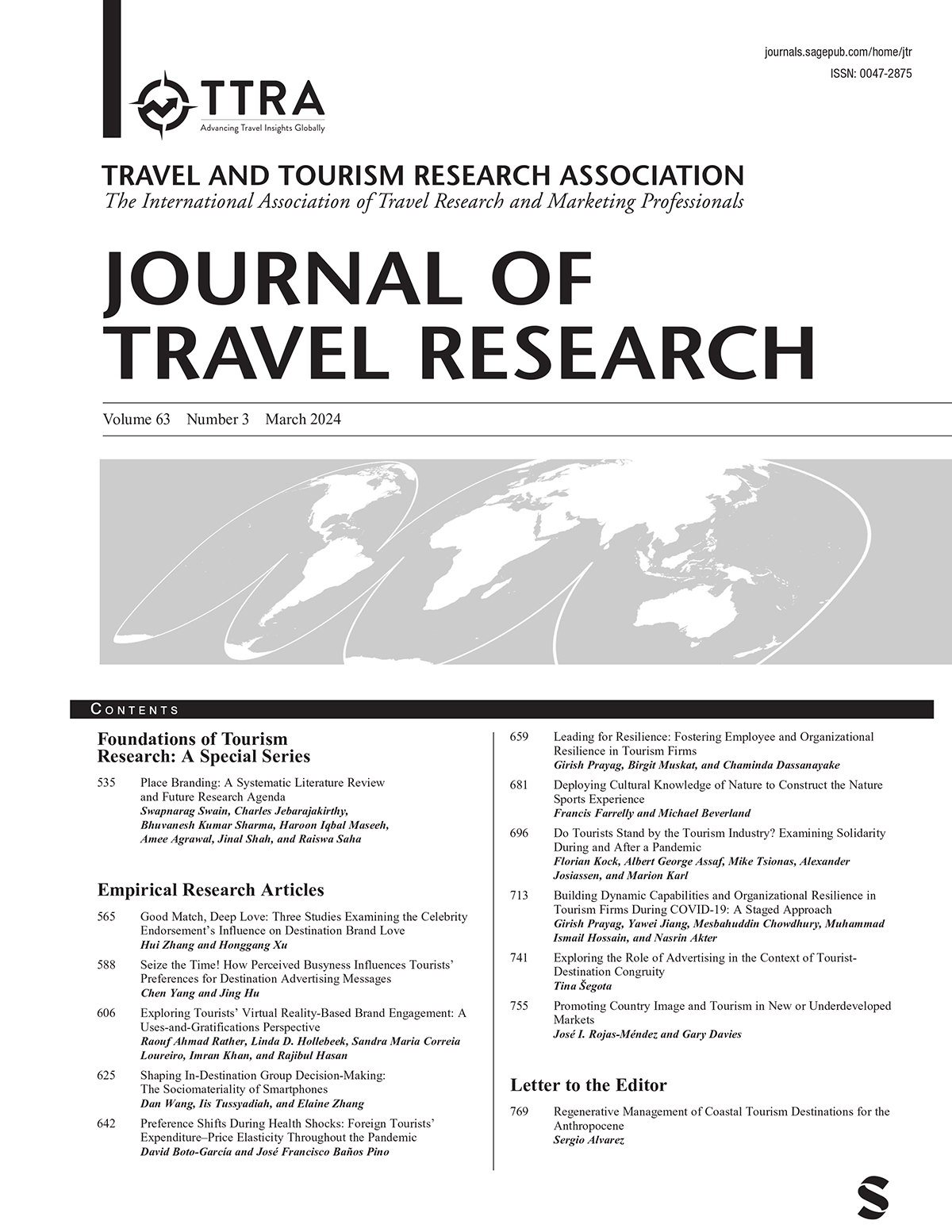The Fallout of Market-Oriented Sustainability Measures: Tourism Destination Sustainability Benchmarking and Ranking
IF 7
2区 管理学
Q1 HOSPITALITY, LEISURE, SPORT & TOURISM
引用次数: 0
Abstract
Destination sustainability indices, designed to facilitate benchmarking, ranking, and direct competition, are increasingly employed by destinations to showcase their sustainability achievements, meet stakeholder expectations, and attract visitors. Consequently, these indices play a pivotal role in influencing how destinations strategically prioritize their sustainability initiatives. Despite the burgeoning research on sustainability measures, research on market-centric destination benchmarks and rankings remains limited. This letter aims to underscore the distinction between measures that apply a minimum standard approach, for example certifications, and those that allow for benchmarking/ranking in assessing destination sustainability. It argues that the latter holds significant potential to impact sustainable destination development. Thus, it investigates the question of what happens when destination sustainability becomes a point of competition and demonstrates that even meticulously designed indices can encourage counterproductive behaviors, potentially undermining sustainability progress at destinations. Based on this, the letter advocates for a comprehensive investigation into market-oriented sustainability indices and rankings.市场导向的可持续性措施的影响:旅游目的地可持续性基准与排名
目的地可持续发展指数旨在促进基准、排名和直接竞争,越来越多的目的地利用这些指数来展示其可持续发展成就,满足利益相关者的期望,并吸引游客。因此,这些指数在影响目的地如何在战略上优先考虑其可持续发展举措方面发挥着关键作用。尽管对可持续性措施的研究正在蓬勃发展,但对以市场为中心的目的地基准和排名的研究仍然有限。这封信旨在强调采用最低标准方法(例如认证)的措施与在评估目的地可持续性时允许基准/排名的措施之间的区别。报告认为,后者具有影响目的地可持续发展的巨大潜力。因此,它调查了当目的地的可持续性成为一个竞争点时会发生什么问题,并证明即使精心设计的指数也会鼓励适得其反的行为,潜在地破坏目的地的可持续性进展。基于此,这封公开信主张对以市场为导向的可持续发展指数和排名进行全面调查。
本文章由计算机程序翻译,如有差异,请以英文原文为准。
求助全文
约1分钟内获得全文
求助全文
来源期刊

Journal of Travel Research
HOSPITALITY, LEISURE, SPORT & TOURISM-
CiteScore
18.90
自引率
9.00%
发文量
66
期刊介绍:
The Journal of Travel Research (JTR) stands as the preeminent, peer-reviewed research journal dedicated to exploring the intricacies of the travel and tourism industry, encompassing development, management, marketing, economics, and behavior. Offering a wealth of up-to-date, meticulously curated research, JTR serves as an invaluable resource for researchers, educators, and industry professionals alike, shedding light on behavioral trends and management theories within one of the most influential and dynamic sectors. Established in 1961, JTR holds the distinction of being the longest-standing among the world’s top-ranked scholarly journals singularly focused on travel and tourism, underscoring the global significance of this multifaceted industry, both economically and socially.
 求助内容:
求助内容: 应助结果提醒方式:
应助结果提醒方式:


